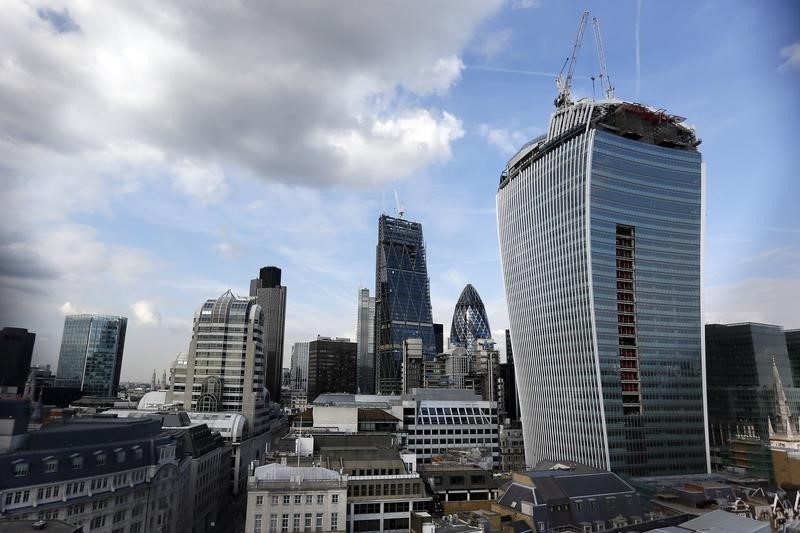By Huw Jones
LONDON (Reuters) - A former leader of London's financial district believes Britain is unlikely to get generous access to the European Union financial market after Brexit, resulting in a loss of 75,000 jobs and 10 billion pounds ($13.2 billion) in tax revenue.
Mark Boleat, political leader of the City of London until last year, said that for mainstream banking and insurance, the most likely outcome of divorce talks is that Britain will be treated like other non-EU states, with no special access after any transitional arrangements have ended.
"So the worst-case scenario - which currently looks the most likely - is the loss of 75,000 jobs and 10 billion pounds of tax revenue," Boleat says in a speech to be delivered at the Cass Business School in London on Wednesday evening and released to media in advance.
Financial services is Britain's biggest economic sector, raising over 70 billion pounds a year in tax. Britain has a financial services trade surplus of 61 billion pounds, 18.5 billion of that with the remaining 27 EU countries.
The City of London and TheCityUK, which promotes Britain as a financial centre, want future UK-EU financial services trade based on "mutual recognition" - or each side accepting the broad thrust of each other's rules.
The government has signalled support for the idea, saying it would be preferable to "equivalence", whereby the EU alone decides whether to grant market access.
But Boleat said the mutual recognition proposals would not fly in Brussels, as they would give Britain benefits only accorded to members of the EU's single market.
"The reaction from the EU 27 has not been favourable, and there is little chance that the EU27 will agree to it. It would actually put Britain in a more favourable position outside the EU than the member states inside would have," Boleat said.
Bankers already doubt that mutual recognition will be agreed.
Britain's finance minister, Chancellor of the Exchequer Philip Hammond, is due to speak in the financial district on Thursday evening, and there are already expectations that he will soften calls to the EU for mutual recognition in financial services.
Financial firms in Britain that need continued access to EU customers after next March have already passed a "point of no return" and are setting up or expanding new hubs elsewhere in the bloc, Boleat said.
This meant that negotiations on transition or future trade relations were increasingly irrelevant for them, he said.
($1 = 0.7594 pounds)
